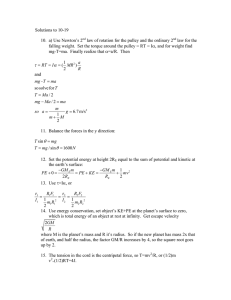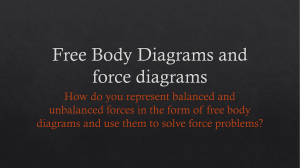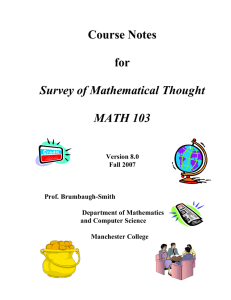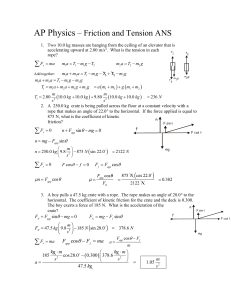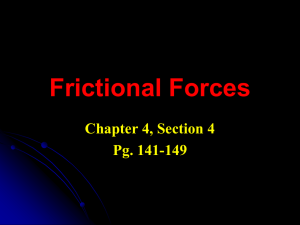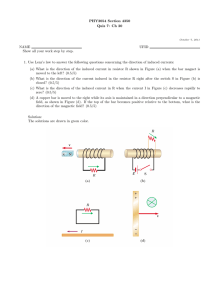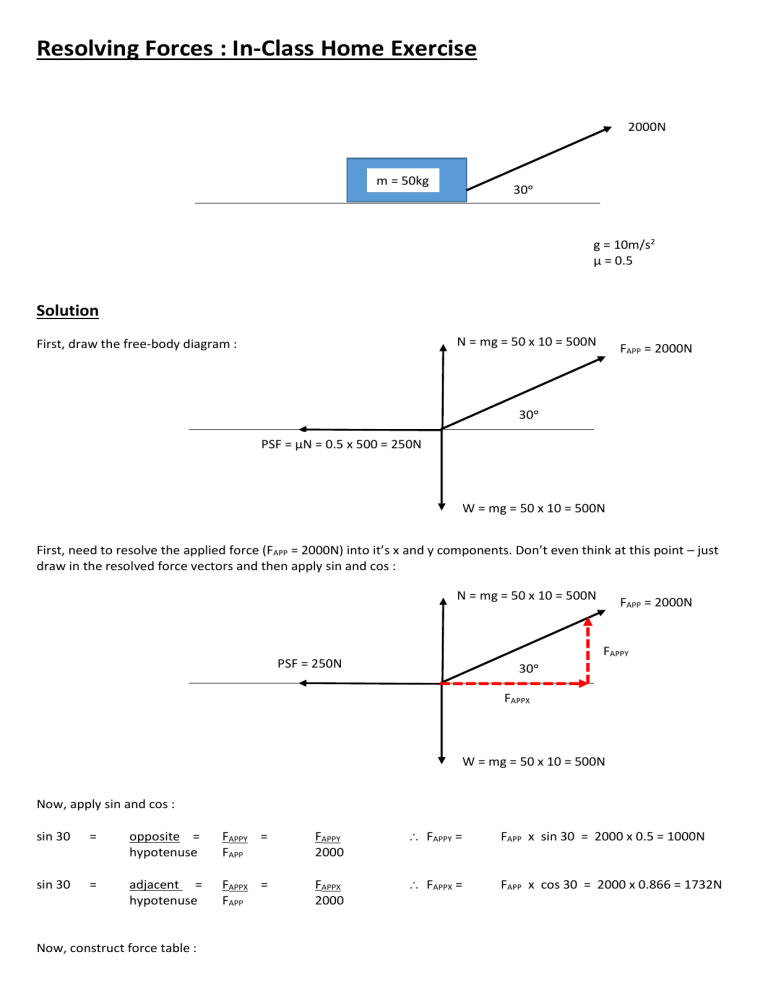
Resolving Forces : In-Class Home Exercise 2000N m = 50kg 30ᵒ g = 10m/s2 µ = 0.5 Solution N = mg = 50 x 10 = 500N First, draw the free-body diagram : FAPP = 2000N 30ᵒ PSF = µN = 0.5 x 500 = 250N W = mg = 50 x 10 = 500N First, need to resolve the applied force (FAPP = 2000N) into it’s x and y components. Don’t even think at this point – just draw in the resolved force vectors and then apply sin and cos : N = mg = 50 x 10 = 500N FAPP = 2000N FAPPY PSF = 250N 30ᵒ FAPPX W = mg = 50 x 10 = 500N Now, apply sin and cos : sin 30 = opposite = hypotenuse FAPPY = FAPP FAPPY 2000 FAPPY = FAPP x sin 30 = 2000 x 0.5 = 1000N sin 30 = adjacent = hypotenuse FAPPX = FAPP FAPPX 2000 FAPPX = FAPP x cos 30 = 2000 x 0.866 = 1732N Now, construct force table : Force X Component Y Component FAPP PSF N W Total FAPPX = 1732N -250N 0N 0N 1732N – 250N = 1482N FAPPY = 1000N 0N 500N -500N 1000N + 500N + -500N = 1000N So, now we know that there is an overall force of 1482N to the right and 1000N upwards. We can draw the resolved total forces in the X and Y direction and then use Pythagorus to resolve these forces into a vector force with direction : 1000N R ᵒ 1482N To determine the magnitude of R : Pythagorus : c2 = a2 + b2 R2 = 14822 + 10002 R= 14822 + 10002 To determine the angle that R makes with the horizontal : tan = opposite = adjacent 1000 = 0.675 1482 = tan -1 (0.675) So, the box is moved by a force of 1787.83N at an angle of 34ᵒ. Using F = ma, we can determine the acceleration of the box : 1787.83 = 50 x a a = 1787.83 = 35.77m/s2 50 R = 1787.83N
